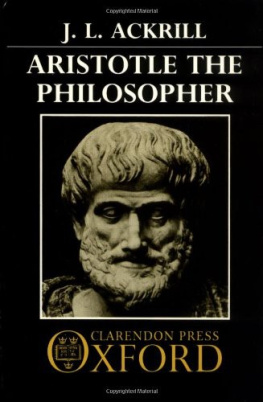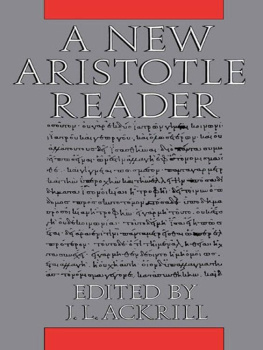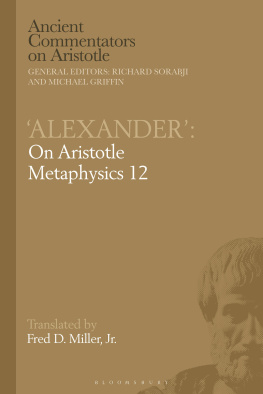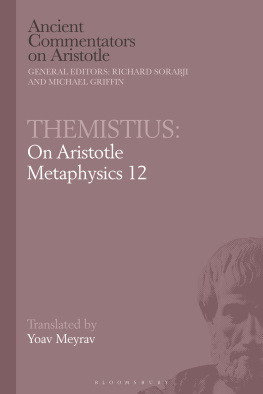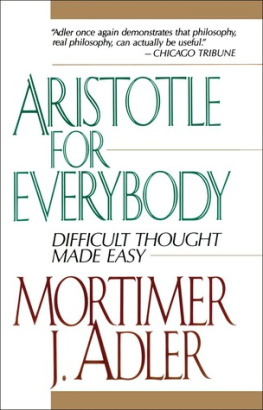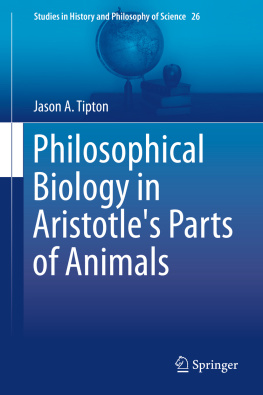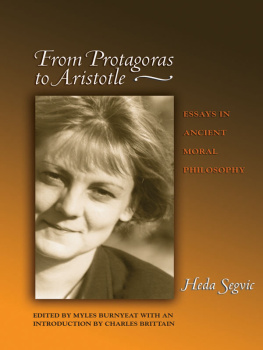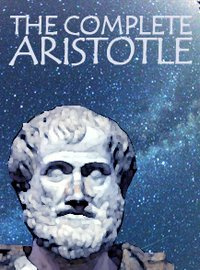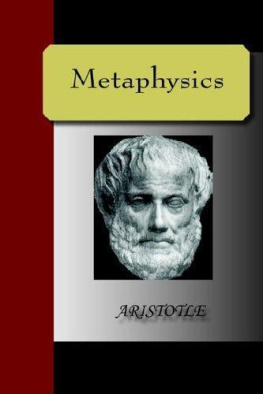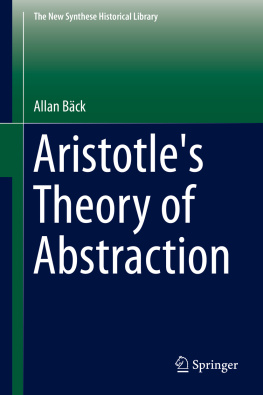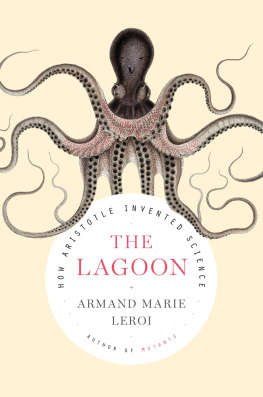J. L. Ackrill
Aristotle the Philosopher
CLARENDON PRESS OXFORD
-iii-
Oxford University Press, Great Clarendon Street, Oxford ox2 6DP
Oxford New York Athens Auckland Bangkok Bogota Bombay Buenos Aires Calcutta Cape Town Dar es Salaam Delhi Florence Hang Kong Istanbul Karachi Kuala Lumpur Madras Madrid Melbourne Mexico City Nairobi Paris Singapore Taipei Tokyo Toronto
and associated companies in Berlin Ibadan
Oxford is a trade mark of Oxford University Press
Published in the United States by Oxford University Press Inc., New York
J. L. Ackrill 1981
First published 1981 as an Oxford University Press paperback and simultaneously in a hardback edition
All rights reserved. No part of this publication may be reproduced, stored in a retrieval system, or transmitted, in any form or by any means, without the prior permission in writing of Oxford University Press. Within the UK, exceptions are allowed in respect of any fair dealing for the purpose of research or private study, or criticism or review, as permitted under the Copyright, Designs and Patents Act, 1988, or in the case of reprographic reproduction in accordance with the terms of the licences issued by the Copyright Licensing Agency. Enquiries concerning reproduction outside these terms and in other countries should be sent to the Rights Department, Oxford University Press, at the address above
This book is sold subject to the condition that it shall not, by way of trade or otherwise, be lent, re-sold, hired out or otherwise circulated without the publisher's prior consent in any form of binding or cover other than that in which it is published and without a similar condition including this condition being imposed on the subsequent purchaser
British Library Cataloguing in Publication Data
Ackrill, J. L.
Aristotle the philosopher.
1. Aristotle--Philosophy
I. Title
185 B485
ISBN 0-19-289118-9 Pbk.
Printed in Great Britain on acid-free paper by J. W. Arrowsmith Ltd, Bristol
-iv-
Preface
My aim in this book is not just to impart information, but to arouse interest in the philosophical problems Aristotle tackles, and in his arguments and ideas. I have tried to bring out the extraordinary range and the excitement of his philosophical investigations, and to show why he is so highly regarded by contemporary philosophers. I very much hope that readers of the book will want to go on to read Aristotle for themselves.
A fuller account of the aims and contents of this book will be found in Chapter 1.
I am most grateful to Henry Hardy and Judith Ackrill for their encouragement and advice, and to Elsie Hinkes for her skilful typing.
Oxford, September 1980 J. L. A.
-v-
[This page intentionally left blank.] | -vi- |
|
Contents
|
|
| 3 The analysis of change: matter and form |
|
| 4 Explanation in natural science |
|
|
|
| 7 The philosophy of science |
|
|
|
|
|
|
-vii-
[This page intentionally left blank.] | -viii- |
|
1 Introduction
The aim of this book
This book is a guide-book to Aristotle's philosophy. I want, in this chapter, to make clear what sort of guide-book I have written, and also to say something about the territory it explores.
It might be thought that a guide to Aristotle the philosopher could just give an account of his doctrines. What they are must by now be well known to experts, and all that is needed is to summarise them as clearly as possible for non-experts. Far from it. Contrary to some traditional assumptions, Aristotle's philosophy is in various ways 'open', and not a closed set of doctrines. Why is Aristotle always credited with 'doctrines' -when other philosophers are said to have views or to make suggestions or to advance theories? There are, I think, two reasons. First, he does aim at developing a systematic and comprehensive philosophy, and at reaching final and correct conclusions about the questions examined. He often relies on conclusions from one enquiry when conducting another, and he often propounds his conclusions with confidence. In short, he seems to have the key to a vast range of problems, and to speak with great authority. Secondly, his works were studied for a long time as if they really did contain a set of authoritative doctrines. His 'treatises' or 'teachings' were regarded as the last word. Students were not encouraged to appraise them critically, but simply to learn and accept the truths they undoubtedly contained.
In fact, an account of Aristotle's philosophy as a set of doctrines must be terribly misleading. For his work extended over many years, from his student days in Plato's Academy to his death at the age of sixty-three. During this time his ideas developed and sometimes changed, he dropped old arguments and invented new ones, he handled central themes in a variety of contexts and with a variety of weapons. It follows that any serious understanding of his thought must allow for its movement, and not treat it as a mere catalogue of conclusions. Moreover, Aristotle's whole approach to philosophy is open and argumentative, and not dogmatic: he claims to proceed -- and to a large extent he does proceed -- by raising questions, laying out problems, and trying out possible answers or strategies. I must not exaggerate here. It is true that
-1-
Aristotle often adopts a headmaster's style, and speaks with assurance as if on the matter in hand final truth has been achieved; and certainly he has an ideal of final and comprehensive philosophical understanding of the world. Nevertheless, through most of his work there also rings, more or less loudly, the note of caution and of questioning: much remains obscure or uncertain, the answers to one set of problems throw up new ones, on important issues arguments may seem evenly balanced. An account of Aristotle's philosophy as a set of doctrines would take all the life and liveliness out of it. It is more like a developing series of problems with a developing series of responses.
What really characterises Aristotle as a philosopher is not the number and weight of his conclusions (his 'doctrines'), but the number and power and subtlety of his arguments and ideas and analyses. It is as well that this should be so. For having to learn a doctrine is a boring task, and specially depressing if you know that it is false; but interesting arguments give pleasure and profit whether or not they really establish the alleged conclusions. Modern astronomers decisively reject Aristotle's account of the heavenly bodies, but it remains of the greatest interest to see what

